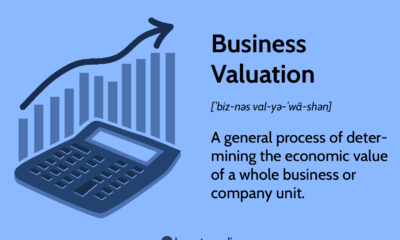Table of Contents:
- Introduction to Flexible Office Spaces
- Why Businesses Prefer Flexible Offices
- Cost Efficiency and Savings
- Enhanced Collaboration and Community
- Scalability and Adaptability
- Boosting Employee Morale and Productivity
- Future of Flexible Office Spaces
Introduction to Flexible Office Spaces
Flexible office spaces, shared or coworking spaces, have revolutionized the traditional office setup. These modern spaces offer businesses the freedom to select their working environment without the commitment of long-term leases. Companies looking for turnkey office space for rent MA will find these spaces particularly beneficial, as they provide ready-to-use offices equipped with essential amenities, allowing businesses to focus on their core activities rather than office management.
Why Businesses Prefer Flexible Offices
Entrepreneurs and established enterprises are increasingly choosing flexible office spaces due to their dynamic nature. These spaces are designed to cater to various business needs, accommodating companies of all sizes and industries. Flexibility, cost savings, and enhanced collaboration opportunities are just a few reasons these offices are in high demand. The freedom to choose from different workspaces, such as private offices, shared spaces, and hot desks, further adds to their appeal.
Cost Efficiency and Savings
One of the primary benefits of flexible office spaces is their cost-effectiveness. Businesses can sidestep the substantial expenses associated with traditional leases and instead pay only for the space they use. This includes utilities, maintenance, and other overheads typically associated with owning or leasing conventional office space. According to recent data, many companies have reported substantial savings by switching to flexible office arrangements. This cost efficiency allows businesses to allocate more of their budget towards growth and development instead of real estate.
Enhanced Collaboration and Community
A key advantage beyond cost savings is the enhanced collaborative environment. Flexible office spaces bring together professionals from various sectors, fostering opportunities for networking and community building. These environments often lead to higher levels of innovation and creativity, making them ideal for businesses looking to thrive in a collaborative setting. Shared spaces encourage spontaneous interactions and exchange of ideas, which can result in productive partnerships and innovative solutions to everyday business challenges.
Networking Opportunities
The diverse tenant mix in flexible office spaces provides ample networking opportunities. Professionals can connect during events, workshops, or casual interactions, leading to potential partnerships and collaborations. The sense of community built in such environments can be incredibly beneficial for personal and professional growth. Access to diverse skills and expertise can lead to collaborative projects and business ventures.
Scalability and Adaptability
The ability to scale operations up or down quickly is another significant benefit of flexible office spaces. Startups experiencing rapid growth or enterprises needing to downsize will find flexible office spaces particularly advantageous. These spaces provide the required adaptability without the hassle of breaking or renegotiating long-term leases. Companies can easily adjust their space requirements as their business needs change, making it a strategic choice in fluctuating markets.
Boosting Employee Morale and Productivity
Flexible office spaces positively impact employee morale and productivity. These spaces are typically designed with modern amenities, comfortable seating, and an aesthetic environment, contributing to a happier workforce. A well-designed office can significantly reduce stress and increase efficiency, improving overall performance. Employees often appreciate the autonomy and variety in their working conditions, which can lead to increased job satisfaction and loyalty.
Modern Amenities
State-of-the-art facilities in flexible office spaces include high-speed internet, well-equipped meeting rooms, and recreational areas. Such amenities ensure that employees have everything they need to perform their tasks effectively, from technical support to spaces designed for relaxation and socialization. Access to amenities such as fitness centers, cafes, and lounges can also enhance the overall work experience, making the office more enjoyable.
Future of Flexible Office Spaces
The trend towards flexible office spaces is set to continue growing. With the rising demand for hybrid work models and remote working options, businesses will keep looking for adaptable solutions that meet their needs. As these spaces evolve, expect even more innovation and growth, making flexible office spaces an integral part of the future workplace landscape. Incorporating advanced technologies and intelligent office solutions will further enhance their appeal, making them an essential component of modern business strategies.
Technological Advancements
The future will likely incorporate advanced technologies like AI and IoT in flexible office spaces. These innovations will further enhance efficiency, security, and the overall user experience, attracting more businesses to innovative, adaptable work environments. Features such as automated lighting, climate control, and advanced security systems will make these spaces more efficient and user-friendly, catering to the evolving needs of businesses and their employees.

 Health1 year ago
Health1 year ago
 Tech1 year ago
Tech1 year ago
 Games10 months ago
Games10 months ago
 NEWS1 year ago
NEWS1 year ago
 Entertainment1 year ago
Entertainment1 year ago
 Games1 year ago
Games1 year ago
 Games1 year ago
Games1 year ago
 Entertainment1 year ago
Entertainment1 year ago


















